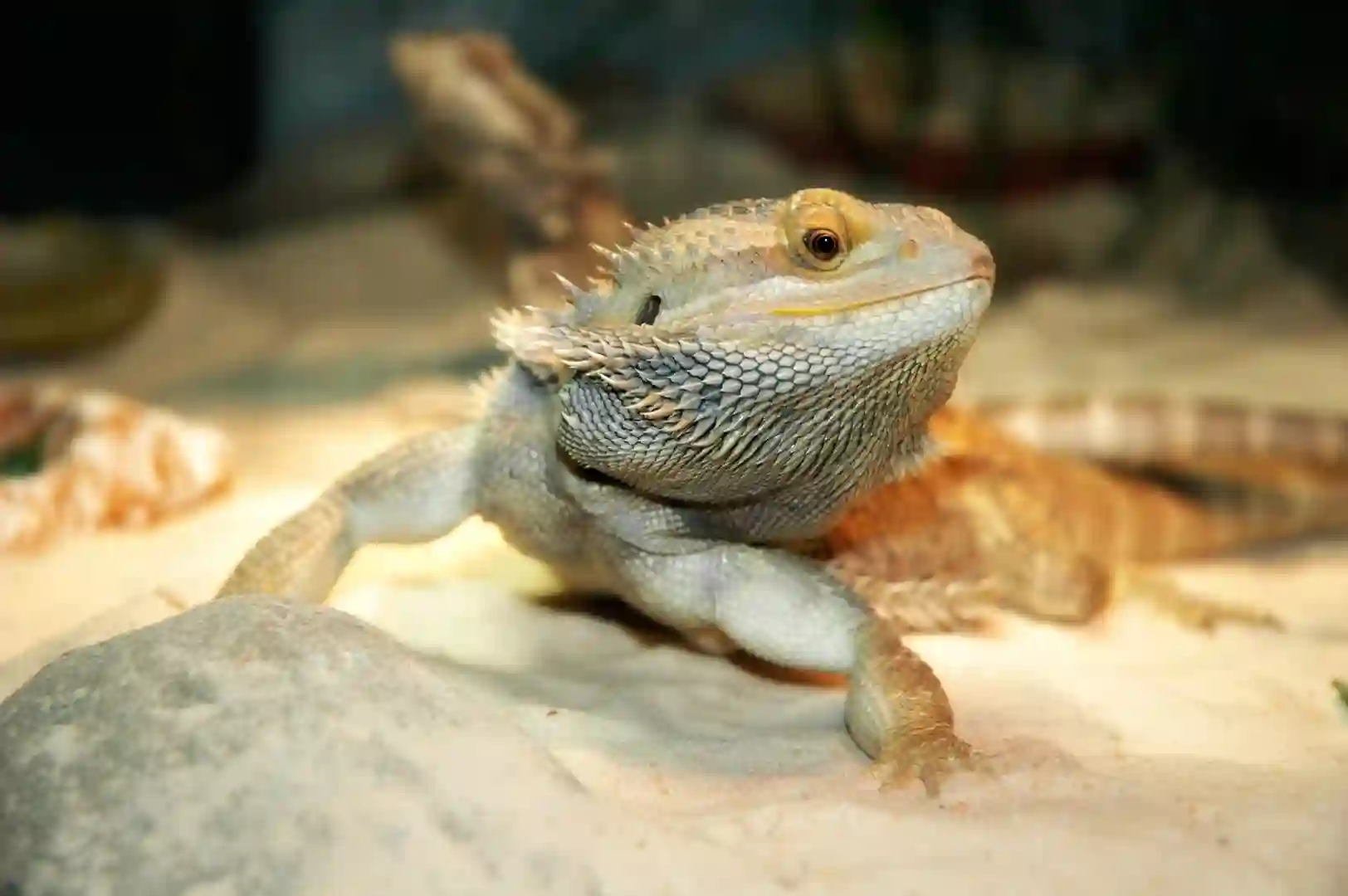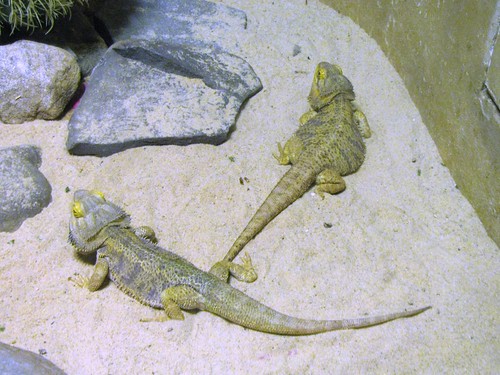Yes, Raspberries can be eaten by bearded dragons, but only in small quantities.
Raspberries are not toxic to bearded dragons, but they contain oxalates and oxalic acid, which can cause serious health issues for bearded dragons because they bind with calcium during digestion to form calcium oxalate, which can’t be absorbed or utilized by the body.
Raspberries should be an occasional treat rather than a diet staple. Bearded dragons can safely eat two or three raspberries every few weeks as a treat.
Nutritional Benefits Of Raspberries For Bearded Dragons
Raspberries can be a safe and healthy addition to a bearded dragon’s diet. While they should be fed in moderation, they offer several nutritional benefits. Here are the nutritional benefits of raspberries for bearded dragons:
- Vitamins: Raspberries contain various vitamins that support a bearded dragon’s health. These include:
- Vitamin C: Crucial for tissue repair, reproduction, organ development, and overall health.
- Vitamin K: Responsible for blood clotting.
- Vitamin E: Important for cellular health.
- Minerals: Raspberries are rich in minerals that are beneficial for bearded dragons. These include:
- Manganese: Helps with metabolism.
- Magnesium: Essential for various bodily functions.
- Iron: Important for oxygen transport in the body.
- Potassium: Helps maintain proper fluid balance and nerve function.
Are There Any Risks Associated With Feeding Raspberries To Bearded Dragons?
It’s important to note that raspberries should be fed in moderation due to certain factors that can be harmful to bearded dragons. These include:
- Oxalates: Raspberries contain oxalates, which can bind with calcium during digestion and form calcium oxalate. Too many oxalates can lead to metabolic bone disease, which severely damages a bearded dragon’s bones.
- High sugar content: Raspberries, like most fruits, contain sugar. While small amounts of sugar are fine, excessive sugar intake can lead to obesity, fatty liver disease, diarrhea, dehydration, diabetes, and tooth and gum decay in bearded dragons.
To ensure the health and well-being of your bearded dragon, it’s recommended to feed raspberries only once or twice a week and in the recommended amounts. It’s also important to provide a balanced diet that includes a mix of fruits, vegetables, and meat or insect sources.
How Often Should Raspberries Be Offered To Bearded Dragons?
Here is the information on how often raspberries should be offered to bearded dragons:
- Bearded dragons can safely eat two or three raspberries every few weeks as a treat.
- It is recommended to make raspberries an occasional treat rather than a diet staple.
- Feeding bearded dragons too many raspberries can lead to severe health issues.
- The nutritional contents of raspberries make it recommended to not feed them to bearded dragons more than once or twice a week.
- Raspberries should be considered an occasional treat rather than a staple addition to a bearded dragon’s diet.
- Juvenile bearded dragons usually do not need to eat fruit, but a healthy adult can eat about three raspberries every two weeks as a treat.
- Baby bearded dragons should not eat raspberries as their sensitive digestive system requires a diet mainly consisting of feeder insects and appropriate leafy greens.
- Raspberries should only be given to bearded dragons as a treat, and their main diet should consist of a mixture of live insects and vegetables.
In summary, raspberries should be offered to bearded dragons as an occasional treat, with a recommended frequency of once or twice every few weeks. Feeding them too many raspberries can have negative health effects, so it’s important to moderate their intake and prioritize a balanced diet of live insects and vegetables.
How To Feed Them Raspberries?
Bearded dragons can eat raspberries, but they should only be fed in moderation as a treat and not as a staple addition to their diet. Here are some tips on how to feed raspberries to your bearded dragon:
- Only serve fresh raspberries to your bearded dragon. Aging raspberries, even if they aren’t quite rotten, can cause diarrhea and make your dragon sick.
- Wash all raspberries beforehand and break them down into bite-sized chunks.
- Feed the raspberries whole or in pieces in a salad. You can place little pieces throughout your beardie’s salad and you will soon see your beardie chomping on the veggies, too.
- Bearded dragons love raspberries and can get very excited to eat them! To avoid being bitten, don’t hand-feed these berries to your pet.
Remember that raspberries are high in sugar and have an unbalanced calcium: phosphorus ratio, so they should be fed to bearded dragons only once or twice a week and in small amounts.
How To Store Raspberries Properly For Your Beardie?
To store raspberries properly for your bearded dragon, follow these tips:
- Wait to wash the raspberries until you are ready to serve them.
- Cut off the stems of the raspberries.
- Store any uneaten raspberries using the paper towel method. Place a paper towel in the bottom of a container, add the raspberries, and then place another paper towel on top. This will help absorb any excess moisture and keep the raspberries fresh.
- It’s best to feed your bearded dragon fresh, raw raspberries. Avoid anything that’s cooked or processed, as processing tends to decrease the nutritional value of the fruit.
- Chop the raspberries up into bite-sized pieces to make them easier for your bearded dragon to eat.
- Consider mixing the chopped raspberries with other fruits and vegetables to discourage your bearded dragon from picking through their food bowl and only eating their preferred items.
- Present the food in a shallow, clean dish that is not easily tipped over. Fresh water should always be available in a shallow dish that can’t be easily tipped over, and the water dish should be washed and cleaned daily.
- Be careful of the size of the raspberries, as they can be quite large and slippery and may become a choking hazard in smaller, younger dragons. Consider cutting them into a smaller, more manageable size before feeding them to your bearded dragon so that they are less likely to choke.
Remember that raspberries contain a high level of sugar, so they should only be given to your bearded dragon in moderation. Two to three raspberries every few weeks is a safe amount.



